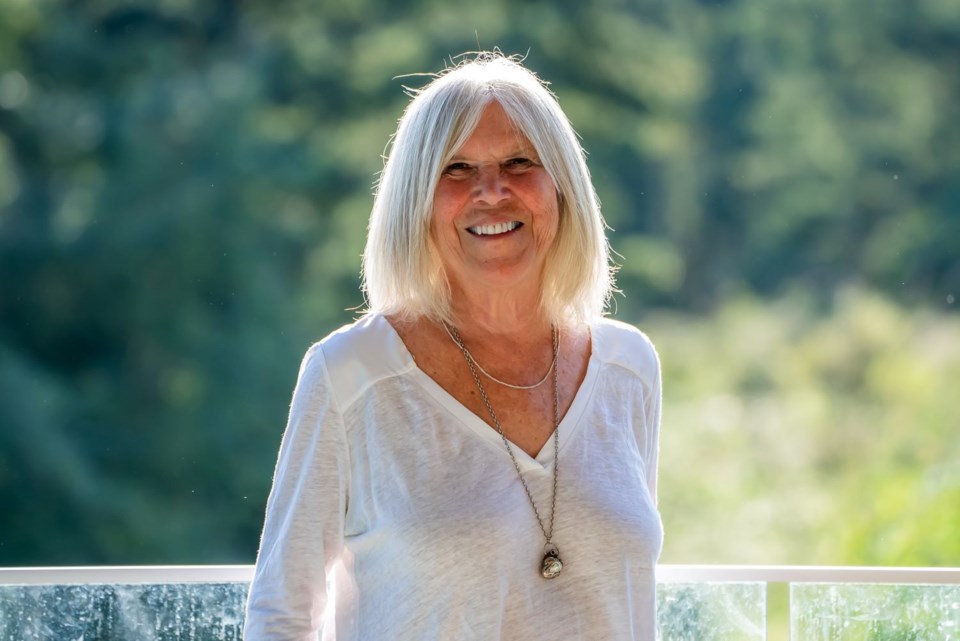A visual artist from Roberts Creek, is one of 1,000 highly sensitized patients (HSP) from across Canada to undergo a kidney transplant.
The patients who are part of this important marker include 93 Canadians who received their transplants at St. Paul’s Hospital in Vancouver — Jane Hennessy, 75, one of them.
“I was incredibly fortunate to receive a kidney transplant, even more so because as a highly sensitized recipient, my chances of finding a match were more tenuous than many,” Hennessy said in a press release. “The transplant was successful and I have a new lease on life. I can’t tell you how well I’m doing.”
‘Highly sensitized’ patients have exceptionally high antibody levels due to factors such as blood transfusions, previous transplants or previous pregnancies, which cause them to reject a kidney from most donors. This makes it highly difficult to find a suitable donor match.
Despite being born with a genetic renal issue called Alport Syndrome, Hennessy lived a normal life until four years ago. That’s when her kidney function tumbled to about nine per cent of the normal level and her loss of energy was severe.
She began home dialysis, knowing one day she would likely need a transplant. When that time came and Hennessy was approved, tests revealed she was a highly sensitized patient, so was placed on the national list.
The HSP program is changing lives
The HSP program is operated by Canadian Blood Services in collaboration with BC Transplant and other provincial donation and transplant programs and organizations. Launched in 2013, it gives highly sensitized patients access to a larger national pool of kidney donors, sharing them across provincial boundaries.
The 1,000 patients whose lives were saved through this organ-sharing initiative, include 144 hard-to-match British Columbians who received a kidney – and a second chance at life.
Dr. Jag Gill, transplant nephrologist at St. Paul’s Hospital, says roughly 25 per cent of patients listed for a kidney transplant in B.C. are highly sensitized, and cannot receive a kidney from 95 per cent of donors.
Because they are hard to match, these patients can wait several years on the waitlist. Some may never find a suitable match. Hennessy was fortunate. She waited only 11 months before the appropriate kidney came along through the program, allowing her to have surgery at St. Paul’s.
Gill notes highly sensitized patients develop antibodies against proteins called human leukocyte antigens.
“Antibodies are produced by the immune system in response to infection or after exposure to another person’s blood or tissues,” he explains. “That is why those who have been pregnant, had blood transfusions or a prior organ transplant may become HSPs.”
Gill calls the program a great success, particularly in B.C., where of the 144 residents who received a kidney through the HSP program, 103 were from donors elsewhere in Canada. Of all the HSP transplants done at St. Paul’s, 68 patients were from outside the province.
“The HSP program has dramatically changed the outcomes for these 144 patients in our province and hundreds more nationally,” says Gill. “We know highly sensitized candidates on the wait list have a greater chance of becoming ill or dying while they wait. By working together with our donation and transplant partners, we are saving more lives.”
Hennessy acknowledges the generosity of the donor in transforming her life.
“I am both sad and enormously grateful for the person and their act of donating a kidney. I hope that the grief of the family is mitigated in some small part by knowing a life was saved,” she said.
Register to donate
Canadians are encouraged to register their decision to become an organ and tissue donor and to share their decision with their family and loved ones. Learn more about deceased donation and how you can register your intent to donate in BC at transplant.bc.ca or registeryourdecision.ca.

